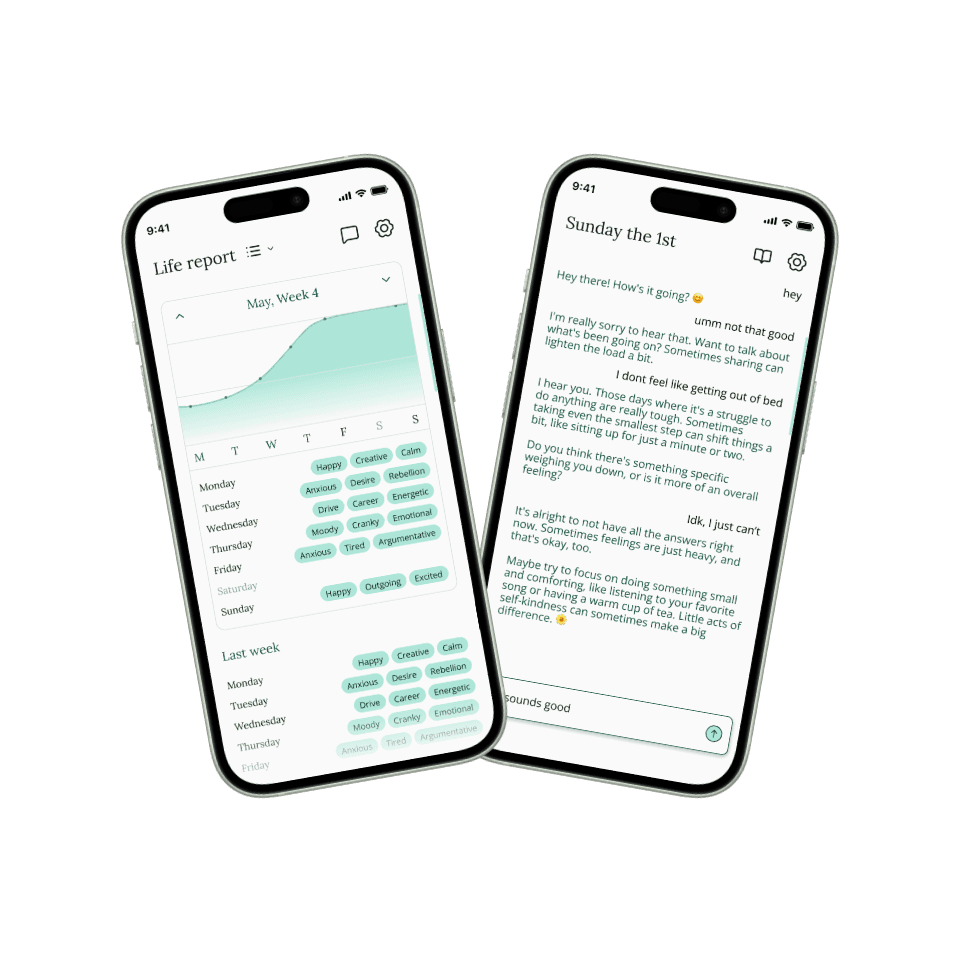
How To Process Emotions Between Therapy Sessions
How To Process Emotions Between Therapy Sessions
Jun 25, 2024
Jun 25, 2024
While therapy provides a dedicated space for emotional exploration, a lot of work also happens between sessions. Here are a few ways to help you process emotions effectively on your own:
Journaling with Intention
Go beyond simply recording events. Use your journal as a tool for deep emotional excavation. Write about your feelings in detail, exploring their origins, triggers, and any patterns you notice. Ask yourself probing questions: "What's beneath this emotion?" "How does this connect to my past?" "What need is this feeling pointing to?" Be brutally honest – this is for your eyes only. Consider using prompts like "Right now, I feel..." or "If this emotion could speak, it would say..." to dive deeper. Review your entries periodically to identify recurring themes or growth areas.
Emotion Regulation
Develop a personalized set of tools for managing intense emotions in the moment. This might include deep breathing exercises, grounding techniques (like the 5-4-3-2-1 method), or physical activities like a brisk walk or stretching. Practice these regularly when you're calm, so they're easier to access during emotional spikes. Create a written or digital "emergency toolkit" listing your go-to strategies, along with reminders of past successes in emotional regulation.
Structured Emotion Check-Ins
Establish a routine for regular emotional processing, mimicking the consistency of therapy sessions. Set aside 20-30 minutes at the same time each day or week. During this time, do a thorough emotional inventory. Use a feelings wheel to identify and name your emotions with precision. Explore the stories behind these feelings, challenge any cognitive distortions, and practice self-compassion. Consider recording these sessions to track your progress over time. Having this dedicated space for emotional work helps prevent buildup and maintains the momentum of your therapeutic journey.
By consistently engaging with these practices between sessions, you're not only reinforcing the work done in therapy but also developing crucial emotional intelligence and self-regulation skills for long-term mental well-being.
While therapy provides a dedicated space for emotional exploration, a lot of work also happens between sessions. Here are a few ways to help you process emotions effectively on your own:
Journaling with Intention
Go beyond simply recording events. Use your journal as a tool for deep emotional excavation. Write about your feelings in detail, exploring their origins, triggers, and any patterns you notice. Ask yourself probing questions: "What's beneath this emotion?" "How does this connect to my past?" "What need is this feeling pointing to?" Be brutally honest – this is for your eyes only. Consider using prompts like "Right now, I feel..." or "If this emotion could speak, it would say..." to dive deeper. Review your entries periodically to identify recurring themes or growth areas.
Emotion Regulation
Develop a personalized set of tools for managing intense emotions in the moment. This might include deep breathing exercises, grounding techniques (like the 5-4-3-2-1 method), or physical activities like a brisk walk or stretching. Practice these regularly when you're calm, so they're easier to access during emotional spikes. Create a written or digital "emergency toolkit" listing your go-to strategies, along with reminders of past successes in emotional regulation.
Structured Emotion Check-Ins
Establish a routine for regular emotional processing, mimicking the consistency of therapy sessions. Set aside 20-30 minutes at the same time each day or week. During this time, do a thorough emotional inventory. Use a feelings wheel to identify and name your emotions with precision. Explore the stories behind these feelings, challenge any cognitive distortions, and practice self-compassion. Consider recording these sessions to track your progress over time. Having this dedicated space for emotional work helps prevent buildup and maintains the momentum of your therapeutic journey.
By consistently engaging with these practices between sessions, you're not only reinforcing the work done in therapy but also developing crucial emotional intelligence and self-regulation skills for long-term mental well-being.
View more insightful blog articles
Today's tune



Track your mental health and get support between sessions with Verba
Learn more

Track your mental health and get support between sessions with Verba
Learn more

Track your mental health and get support between sessions with Verba
Learn more

Advait Naik
Advait is the founder of Verba and is working at the intersection of psychology, design and technology to create Verba, an app that helps us be more self aware through clarity and communicate our life in therapy